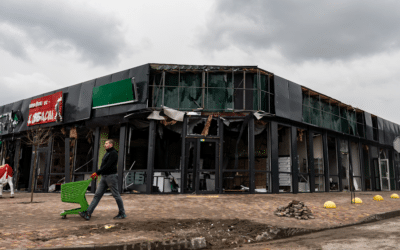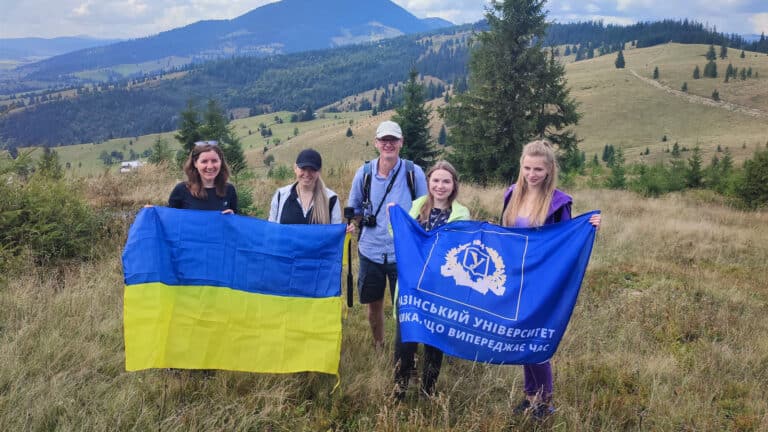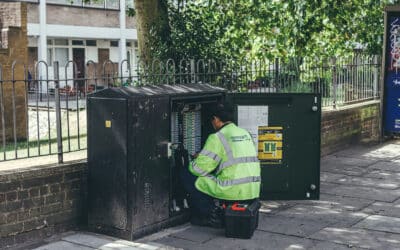A University of Salford academic is doing his best to ensure education can continue in war-torn Ukraine with a special online learning project.
Salford’s Simon M Hutchinson, a Geography Associate Professor, has been working with colleagues at V. N. Karazin Kharkiv National University (KKNU), Taras Shevchenko National University of Kyiv and Yuriy Fedkovych Chernivtsi National University (YFCNU) on the Virtual Field Trips (VFTs) for Ukraine Initiative, which aims to bring some sense of normality back to the country’s fractured education system by providing Ukrainian geography students at opposite ends of Ukraine, but affected by the war, with a chance to continue learning via interactive online materials.
Hutchinson was inspired by the successful switch to online materials and making field trips virtually during the COVID period. Online education platform Thinglink is supporting the project by providing a free link for the next two year for Kharkiv University, but communication between the UK and Ukraine has been made more complicated as recent regular missile attacks mean loss of power in the eastern European country.
The professor said: “I am committed to ongoing support for higher education during the war and through the inevitable protracted period of reconstruction. It is so extremely important for students’ learning to not be halted during a time like this, so this initiative is doing everything it can to battle the effects of the conflict in Ukraine.”
Ukraine has now been at war with Russia for over two years. Since the conflict began early in 2022 Russia has targeted Ukraine’s infrastructure including its education system. Courses for many students have been violently disrupted due to physical damage to university buildings, and both staff and students being displaced and becoming refugees in other countries. As a result, learning in many universities has been moved online. Campuses have reopened in regions away from the frontline, but life remains far from normal with the constant threat of air raids.
Because of this, courses such as Geography and Environmental Science, that rely on field-based teaching, are badly impacted and will be for the foreseeable future. Even after the war ends, many areas will remain hazardous due to unexploded munitions, and the loss of resources and infrastructure means teaching programmes will remain impacted for years to come.
So far, 75 students have engaged in creating virtual field trips, allowing them to continue their academic journey, with engagement increasing thanks to being showcased internationally at the European Geophysical Union and the American Geophysical Union. The Royal Geographical Society has supported the initiative by hosting some of the students’ virtual field trips as examples of Geovisualisation on its website for a worldwide audience.
Hutchinson added: “We have had some fantastic feedback so far and it’s great to be able to help out even in a small way. This project will continue for as long as it’s necessary and helpful.”
Dean of the School of Geology, Geography, Recreation and Tourism, V. N. Karazin Kharkiv National University, Vilina A. Peresadko, added: “I would like to express my gratitude to Dr Simon Hutchinson for holding the series of online workshops on virtual field trips creation for students and staff. The workshops have helped our students to engage with their studies, connect with their peers and staff, and learn additional skills.”










